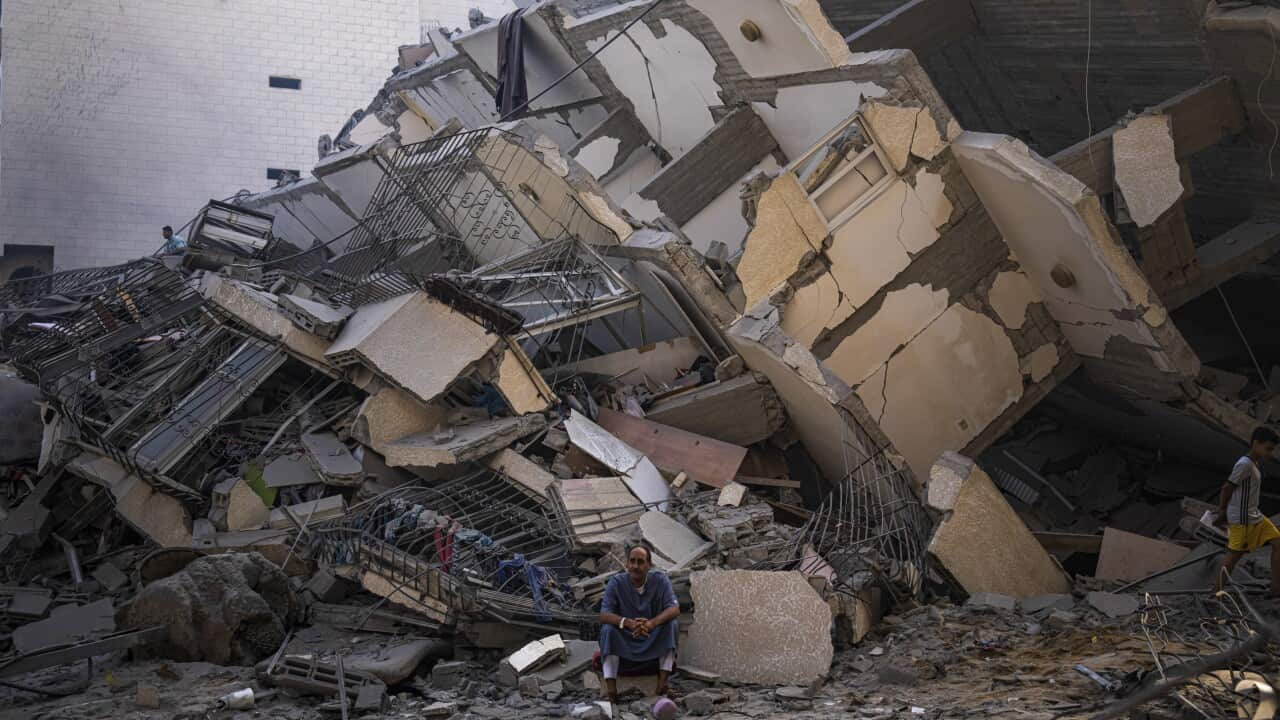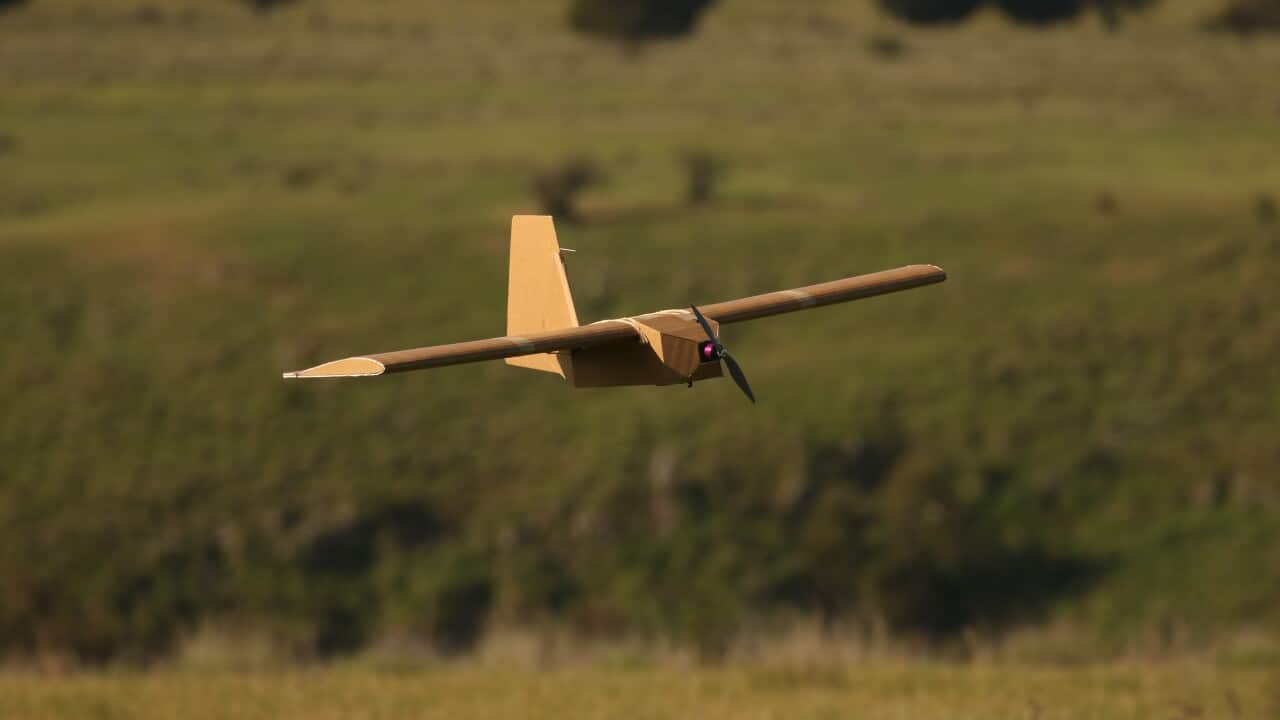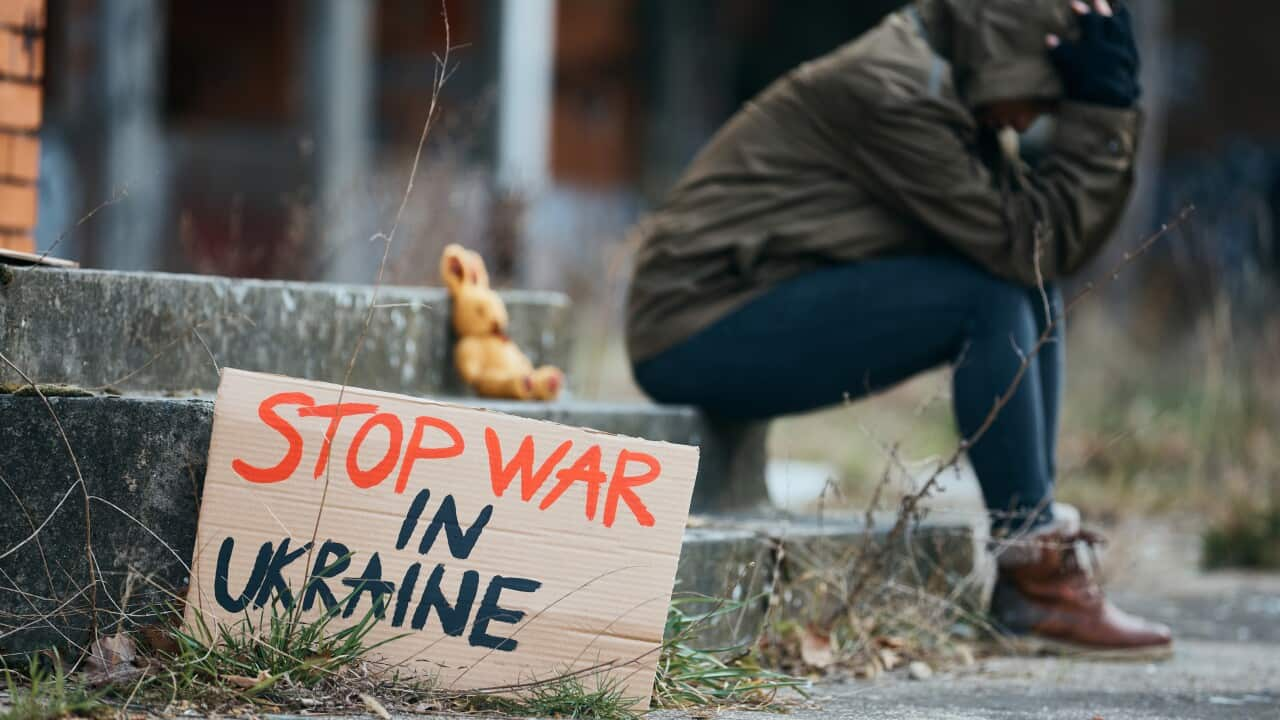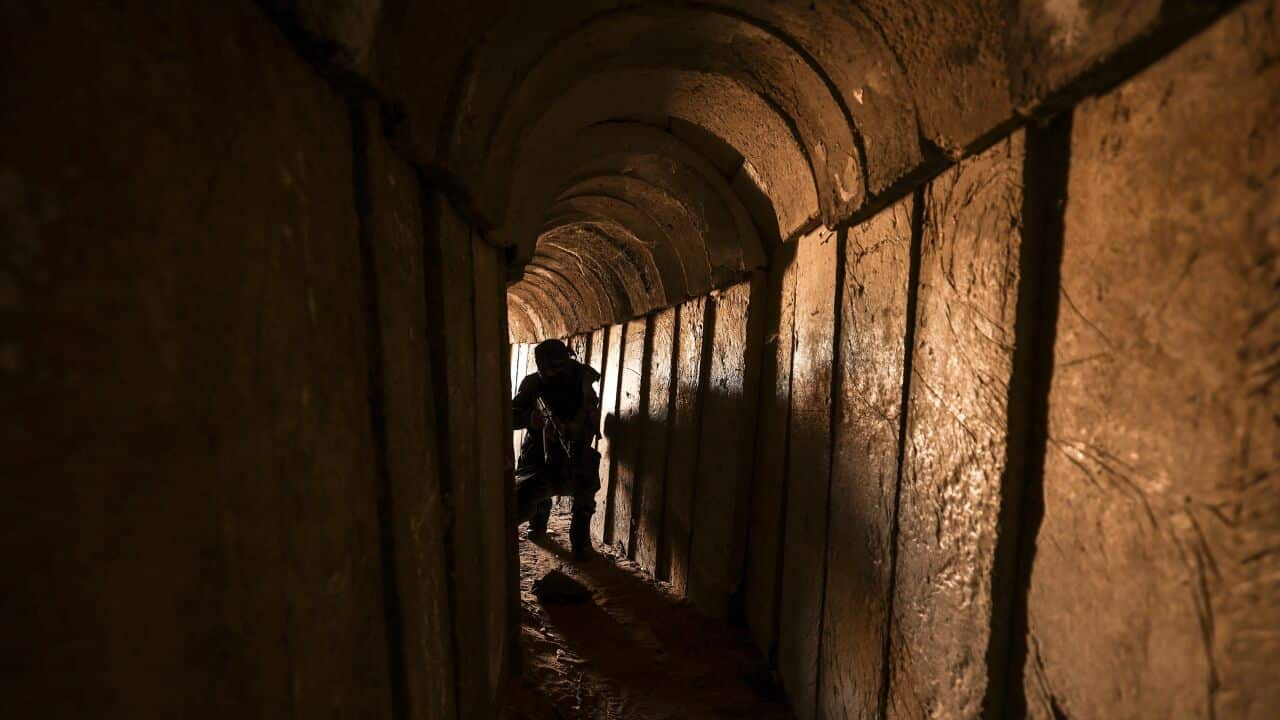Key Points
- Ukraine is worried about the Hamas-Israel war.
- But some analysts say it may not help Russian President Vladimir Putin.
- NATO has guaranteed continued support for Ukraine.
As much of the world monitors the in conflict between Israel and , Ukrainian president said another global battlefront could hurt support for his country in its .
Some analysts have argued that in the could present an opportunity for Russian President Vladimir Putin's army while the world is distracted.
But former director of the Joint Intelligence Organisation of Australia, Paul Dibb, told SBS News the nature of the war between Russia and Ukraine means neither side will have any quick wins.
"I don't see any chance that either Ukraine or Russia, are going to take advantage of the world's preoccupation with Israel, Hamas and the Gaza Strip by making a major breakthrough," he said.
"Instead, it's a long drawn out slog of a battle."
Dibb compared the situation to long battles of attrition fought during World War One.
What have Volodomyr Zelenskyy's allies said?
Zelenskyy visited NATO defence ministers in Brussels last week and successfully pleaded for continued assistance and a boost to air defence systems as the country braces for attacks on its power grid during winter.
"My question was ... will your support be less than now?" Zelenskyy told reporters.
"The partners say 'no'. But who knows how it will be? I think nobody knows."
"If there are other tragedies in the world, there is only a certain amount of military support to share, and Russia hopes that support will be divided," Zelenskyy told reporters at the Belgian parliament.
Referring to having allies distracted by other conflicts and elections in the US, he said people in Ukraine faced "a dangerous situation."
Zelenskyy's allies were quick to offer reassurances that support for Ukraine would not drop off.
NATO Secretary General Jens Stoltenberg said he was confident that members of the military alliance would continue to support Ukraine as it was in their own security interests.
"We have the capability and the strength to address different challenges at the same time," he added. "We don't have the luxury of choosing only one threat and one challenge."
US President Joe Biden said the US could take care of "both of these wars and still maintain our international defence".
"We're the United States of America, for God's sake. The most powerful nation in the history of the world," he told CBS.
Russia and Ukraine's 'long war of attrition'
Ukraine started a counteroffensive over the summer to try to retake territory in the south and east but has so far failed to make major breakthroughs in Russia's network of fortifications and minefields.
Dibb acknowledges that support from allies is "critical to Ukraine given the sheer intensity" of the war it's in.
"The Russians dig in and build very formidable defensive barriers, with huge numbers of landmines, modern very sophisticated land mines, and, and trenches, and anti-tank. devices, and so on.
"That's not to be critical of the Ukrainians, they're doing well, for a country that's scarcely 40 million people against Russia, that's 144 million."
Ukraine has a limited weapons manufacturing capability but is starting to make more supplies of its own.
Though Zelenskyy was thankful for the 120 armoured vehicles Australia has sent its ally, and $890 million spent on military aid, he has consistently asked for more.
A longer war is seen by some analysts as being in Russia’s favour as the commitment of allies is potentially worn away by national political opposition, and worries about cost.
Robert Dover, professor of intelligence and national security at England's University of Hull, said the US has already been distracted diplomatically.
"The conflict could also divert military equipment to the Middle East rather than to Ukraine," he wrote for
"A war might also serve to further loosen the will of Ukraine’s allies to sustain their spending in Ukraine. It might do so because the implications of a wider Middle Eastern conflict, or China opportunistically attacking Taiwan, would outweigh the consequences of continued hostilities in Ukraine."
How does the Hamas-Israel war affect Vladimir Putin?
Dibb said Putin underestimated how western nations would unite to support Ukraine through the war, and similarly how hard it would be to take Ukraine down.
He said it's hard to see Putin forming major allyships in the Middle East.
"He'll try and destabilise (world order) and monkey around, not least through the fact that he has significant military credit in other countries.
"I think Putin has got plenty on his plate and a demonstration of that is his complete failure to do anything about conflict between Armenia and Azerbaijan over Nagorno-Karabakh. And that was not a good look for Putin's influence, it shows you he's focused heavily on Ukraine."
Dover said Putin's relationships in the Middle East are not clear cut.
He argues Russia has historically been friendly with Israel, though it has also recently become friendlier towards Iran, whose leaders reacted to Hamas' assault with encouragement and support.
- With additional reporting by Reuters.













